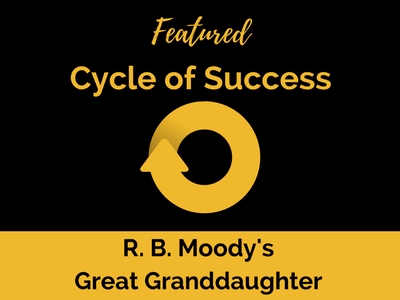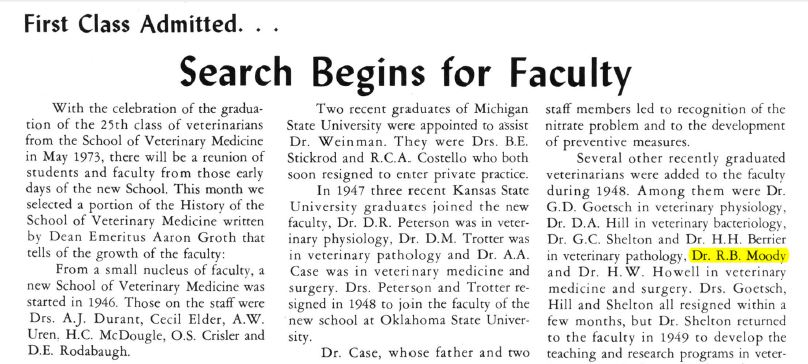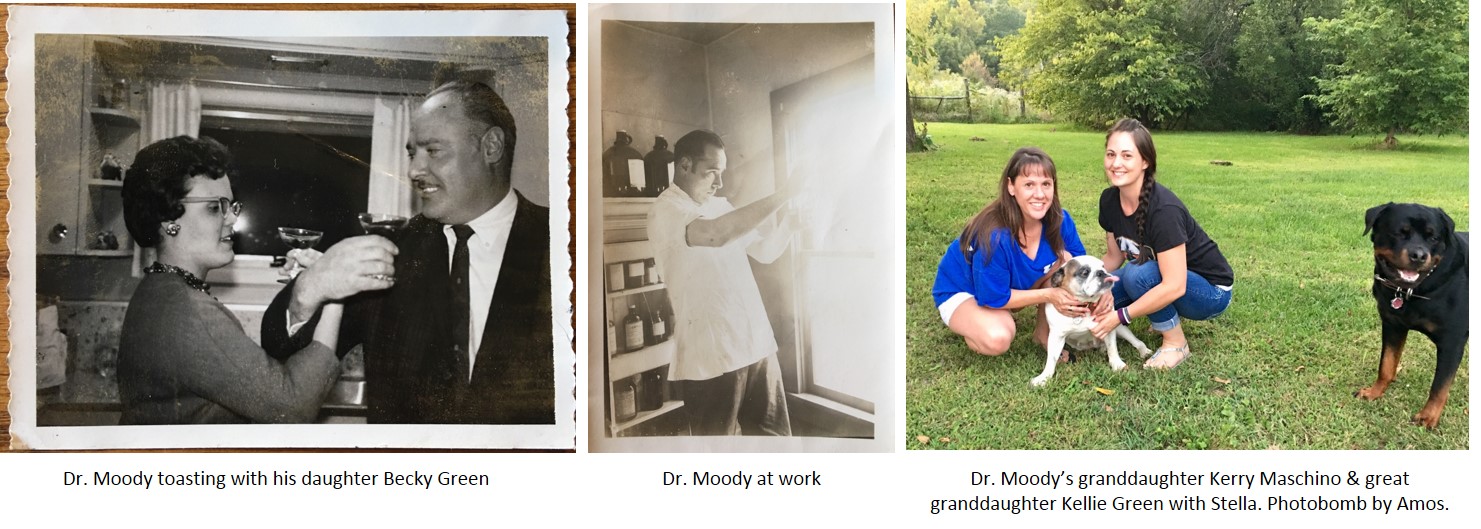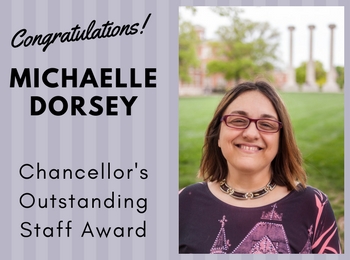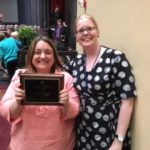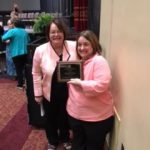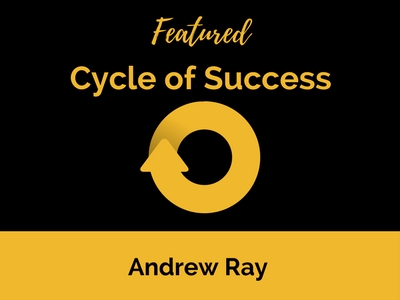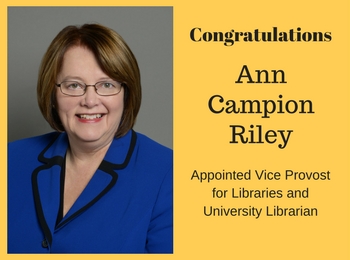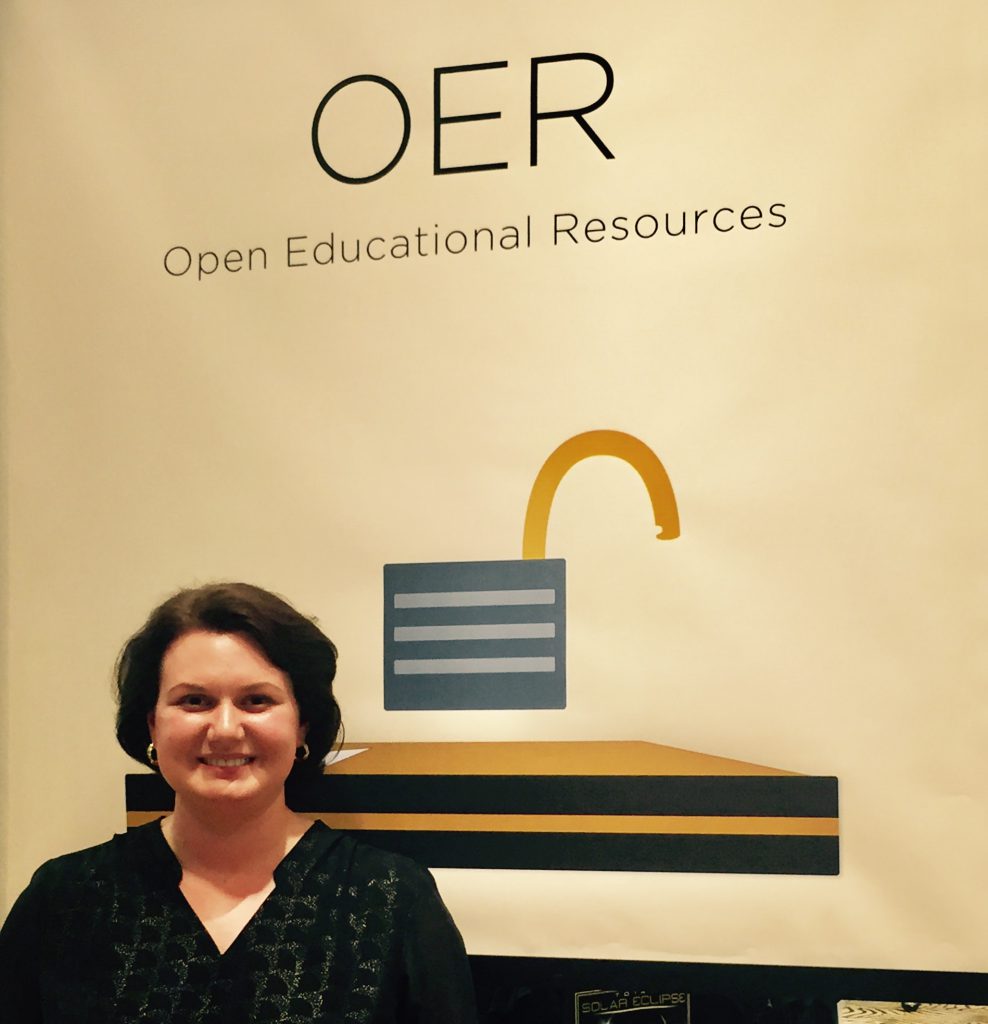The Missouri Library Association’s Outstanding New Librarian Award recognizes an early-career librarian who has made a significant contribution to the improvement and advancement of library and information services in the state of Missouri. Grace Atkins, the Outreach & Open Education Librarian for the University of Missouri Libraries, has been chosen for this year.
Atkins received her Master of Science in Information Studies from the University of Texas at Austin School of Information in May 2015. At the iSchool, she specialized in Academic Libraries and Digital Libraries. She entered into the position of User Engagement Librarian at the University of Missouri in August 2015, and worked to improve the user experience in Ellis Library. Over the two-year period she has been at Mizzou, her role has evolved into outreach for all nine libraries on campus.
This past year, Atkins has focused on communication and marketing to reach library users. She worked with the marketing and social media teams to collaborate on creating a library newshub, which provides a way for library staff and users to share information about updates on services, collections, staff, workshops, and other events. As the liaison for student outreach, she established a University Libraries Student Advisory Council, which has greatly improved communication between library administration and student leaders. In Spring 2017, she partnered with MU’s Student Affairs office to pass a student fee through which a portion of the funding goes toward student-focused library services, such as keeping the main library open 24 hours a day, 5 days a week.
In her role as an Open Education librarian, Atkins is a campus coordinator for a UM system’s Affordable & Open Educational Resources (AOER) initiative, which is working to create a more equitable learning environment for students by significantly reducing the cost of textbooks and other course materials. As a new MOBIUS system leader for the Open Textbook Network, she will be providing training to librarians throughout the statewide consortia on how to use the Open Textbook Library. She has also recently been named a national fellow for the new SPARC Open Education Leadership program.
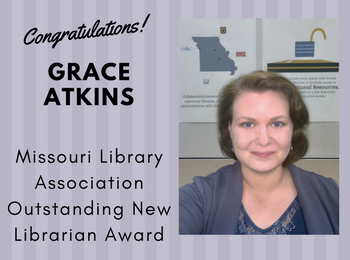


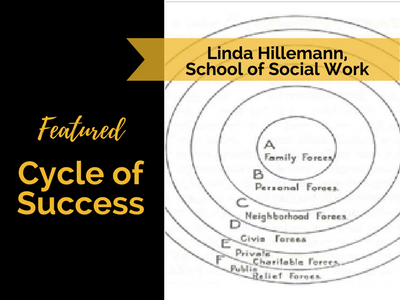


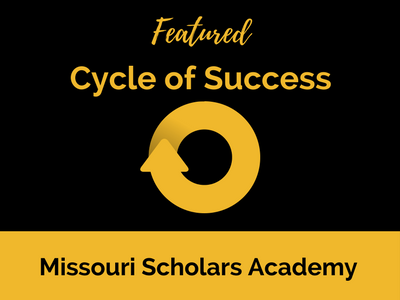
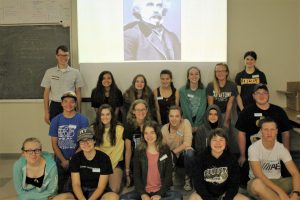 The
The 

